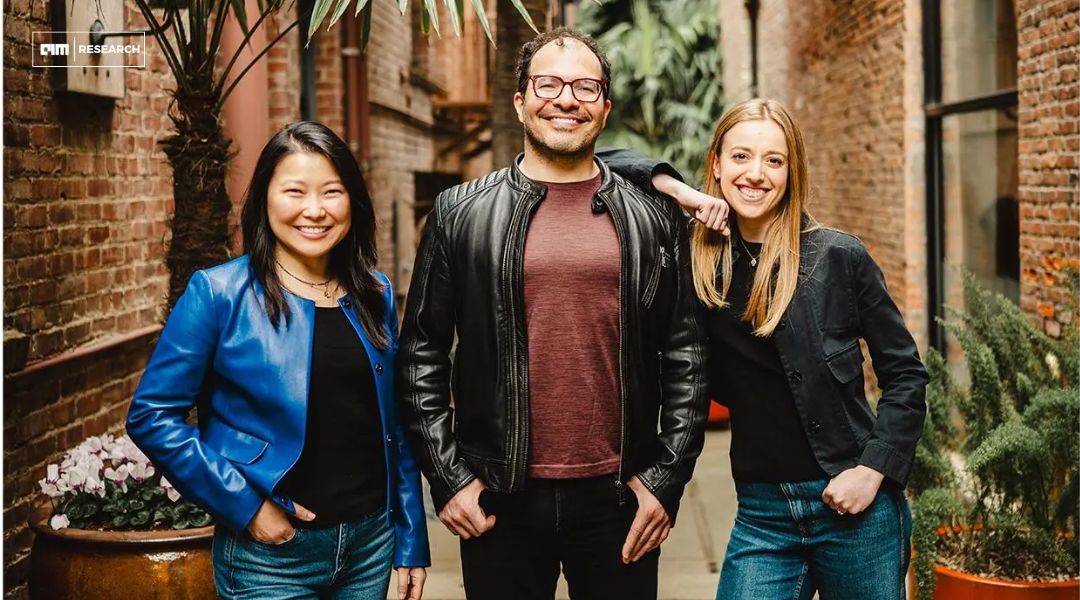

Venture capitalists once cared deeply about polished resumes and brand-name degrees. Today, in the middle of the artificial intelligence boom, they are looking elsewhere. Founders with no patience for credentials, no appetite for permission, and often, no diploma are building companies too fast for the traditional model to catch up.
At funds like 1517, the thesis is simple: credentialed founders build conventional companies. Outliers, the ones who create entirely new markets rarely look the part. Increasingly, they are walking away from the classroom to build AI startups before graduation papers can even be printed.
Across San Francisco’s hacker houses, Y Combinator cohorts, and the portfolios of early-stage investors, the trend is visible. Some of the most aggressive and promising AI startups are being built not inside college campuses, but in spite of them.
At Tetsuwan, Caltech dropout Théo Schäfer and co-founder Cristian Ponce realized the potential of multimodal AI early. During OpenAI’s Dev Day, they experimented with GPT-4’s ability to reason through complex scientific experiments. When the model successfully analyzed a gel electrophoresis run and diagnosed experimental artifacts, it was a technical unlock that validated their intuition. Instead of staying to collect credentials, they started building AI systems that could automate scientific labor, combining robotics with AI agents that plan, execute, and verify lab work.
Their goal is to address the life sciences reproducibility crisis, something major pharmaceutical companies still struggle with. Traditional lab automation remains stuck in workflows that require months of engineering effort for every new experiment. Tetsuwan’s agentic systems aim to change that, allowing scientists to communicate experimental intent naturally, with the robot handling the tedious, failure-prone execution. Schaffer and Ponce did not wait to finish degrees before they started solving a problem the entire industry admits is broken.
At Bindwell, another early dropout-led startup, the approach was equally direct. Tyler Rose, who attended MVHS and later began at Caltech, teamed up with Navvye Anand to build lightweight, CUDA-optimized AI models that could improve pesticide discovery. Existing tools in the agrochemical sector were slow, expensive, and outdated. Bindwell’s models offered faster, cheaper, and more accurate alternatives. They pitched their software directly to companies frustrated by legacy systems and secured a coveted spot in Y Combinator’s Winter 2025 batch. As with Testuwan, the validation did not come from academic journals. It came from technical results that outperformed incumbents.
Mercor and Delve are examples of how little patience this new generation has for traditional timelines. Brendan Foody, Adarsh Hiremath, and Surya Midha left Georgetown and Harvard during their sophomore years to focus full-time on Mercor, a platform connecting engineers worldwide to AI-driven freelance opportunities. Within months, Mercor had reached $1 million in annual revenue and $80,000 in profits without raising external funding. Their early traction showed how traditional hiring processes , still obsessed with credentials, were missing enormous pools of capable talent.
Delve’s founders, MIT dropouts Selin Kocalar and Karun Kaushik, moved with similar urgency. They built an AI agent system that automates compliance for companies dealing with data and security standards, bypassing the need for bloated, slow-moving compliance teams. In a little over a year, Delve signed over a hundred customers while operating with a team far leaner than traditional competitors. Both companies point to the same reality: degrees may add polish, but speed adds customers.
The founders of Scale AI and Etched AI took the idea even further, showing that dropping out is not a handicap but often an advantage. Alexandr Wang left MIT to build Scale, which today powers the data infrastructure for some of the world’s largest AI companies, including Meta, Microsoft, and OpenAI. Wang’s decision to leave early was not about rejecting education — it was about moving faster than the institutions built for slower eras.
At Etched AI, Harvard dropouts Gavin Uberti and Chris Zhu are attempting to outmaneuver Nvidia, a company nearly synonymous with AI hardware. Convinced that transformer models would define the next decade, they designed the Sohu chip — a specialized ASIC that, by their own metrics, delivers performance improvements so large that eight of their chips can replace 160 of Nvidia’s H100 GPUs. The technical ambition is enormous, but what defines both Scale and Etched is their founders’ decision not to wait for external validation. They built because they were convinced the market would need them sooner than any university could prepare them.
Not every dropout story fits neatly into traditional startup categories. Aaru’s founders, Cameron Fink and John K are two college dropouts and a high school sophomore, are trying to rewrite how political polling works. Rather than rely on slow, costly surveys, Aaru simulates thousands of AI-powered “voters,” producing near-instant predictions that recently matched election results within 371 votes.
Stanford’s Demi Guo and Chenlin Meng, frustrated by the limitations of video editing tools, left academia to build Pika, an AI video generation platform now serving millions. Their success wasn’t born from a research lab; it came from building something they needed themselves, better than anything the market offered.
At Cluely, Columbia student Chungin “Roy” Lee didn’t even wait to graduate before colliding with institutional norms. Suspended after building Interview Coder, a tool that used AI to cheat coding interviews, Lee doubled down on the idea, expanding the concept into Cluely — a real-time AI assistant that helps users navigate interviews, sales calls, and negotiations without ever tipping off the other side. To its founders, the idea is straightforward: in a world full of leverage tools like calculators and search engines, live AI assistance is simply another step forward.
Cory Levy, who runs Z Fellows, sees the change accelerating. Since the launch of ChatGPT, he has watched the number of college and even high school students dropping out to build AI startups rise dramatically. In his view, young founders are not rejecting education out of rebellion. They are making a calculated decision about speed.
In the current AI economy, ideas do not wait four years to mature. They compound weekly, sometimes daily. University syllabi, once a reasonable roadmap for future employment, now lag behind the frontiers where opportunities are emerging.
The investors backing this generation are not betting on immaturity. They are betting that speed matters more than certificates, and that the market will continue to reward those who act faster than the institutions built to credential them.
And the diplomas? They’ll just have to catch up.
📣 Want to advertise in AIM Research? Book here >
Cypher 2024
21-22 Nov 2024, Santa Clara Convention Center, CA
A Vendor Briefing is a research tool for our industry analysts, and an opportunity for a vendor to present its products, services and business strategies to analysts who cover the vendor specifically or a related technology or market.
AIM Research encourages technology vendors and agencies to brief our team for PeMa Quadrants, when introducing a new product, changing a business model, or forming a partnership, merger, or acquisition.


